
Treatment with sacituzumab govitecan elicited an objective response rate of 34% in patients with heavily pretreated metastatic triple-negative breast cancer.

Your AI-Trained Oncology Knowledge Connection!


Treatment with sacituzumab govitecan elicited an objective response rate of 34% in patients with heavily pretreated metastatic triple-negative breast cancer.
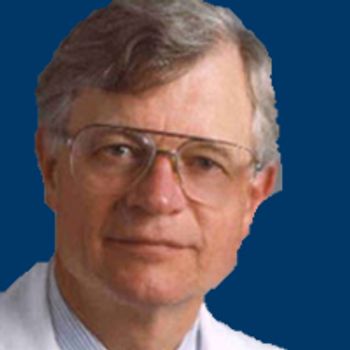
A trial to determine the value of trastuzumab plus standard adjuvant chemotherapy in patients with low levels of HER2 protein has shown no significant efficacy, confounding investigators who launched the trial based on opposing results from 2 earlier studies.

Data from the phase II PERTAIN trial presented late last year at the 2016 San Antonio Breast Cancer Symposium showed that adding an aromatase inhibitor (AI) to pertuzumab and trastuzumab extended progression-free survival by over 3 months versus trastuzumab plus an AI in patients with HER2-positive, HR-positive locally advanced or metastatic breast cancer.

The Fc-modified monoclonal antibody margetuximab in combination with chemotherapy may offer a new treatment option for patients with HER2-positive metastatic breast cancer.

A prophylactic treatment of loperamide plus budesonide reduced the rate of grade 3 diarrhea associated with neratinib.
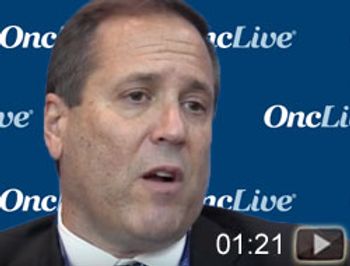
Adam M. Brufsky, MD, PhD, professor of Medicine, associate chief of Hematology/Oncology, co-director of the Comprehensive Breast Care Center, associate director of Clinical Investigation, University of Pittsburgh, discusses combining cobimetinib and paclitaxel as a first-line treatment in patients with advanced triple-negative breast cancer.

Patients with breast cancer who received radiation therapy after undergoing a mastectomy reported increased complications and lower satisfaction.

The neoadjuvant combination of CDK4/6 inhibitor abemaciclib plus anastrazole may represent a novel therapeutic option for patients with hormone receptor-positive, HER2-negative early breast cancer.

Results of a clinical trial show that an axillary lymph node dissection can be avoided for patients with large, operable tumors in the breast, no clinical signs of cancer in the axillary nodes before being treated with neoadjuvant chemotherapy, and no signs of cancer following a sentinel lymph node biopsy during surgery.

A continuous low-dose of ribociclib demonstrated both preliminary activity and an acceptable safety profile when compared with an intermittent dose of ribociclib when combined with fulvestrant in the treatment of postmenopausal patients with hormone receptor-positive, HER2-negative advanced breast cancer.

Testing for BRCA1 methylation or mRNA silencing did not predict a better response to carboplatin over docetaxel in patients with advanced triple-negative or BRCA1/2 breast cancer.
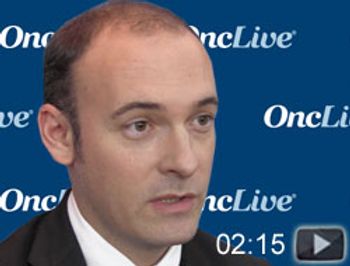
Aleix Prat, MD, PhD, head of the Department of Medical Oncology, the August Pi i Sunyer Biomedical Research Institute, discusses the results of the open-label PAMELA trial, in which the HER2-enriched subtype predicted pathologic complete response to targeted treatment in patients with HER2-positive, hormone receptor-positive breast cancer.
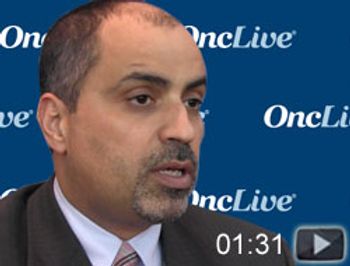
Mothaffar F. Rimawi, MD, associate professor and medical director at the Lester and Sue Smith Breast Center at the Dan L. Duncan Comprehensive Cancer Center at Baylor College of Medicine, discusses the findings of the NSABP B-52 trial, which explored the addition of neoadjuvant estrogen deprivation therapy to docetaxel and carboplatin plus the HER2 inhibitors trastuzumab (Herceptin) and pertuzumab (Perjeta) as treatment for patients with HER2-positive breast cancer.
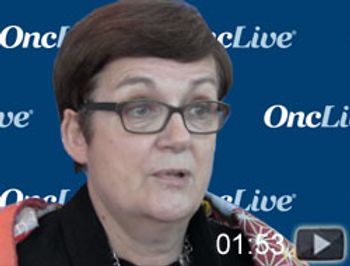
Véronique Diéras, MD, Department of Clinical Research, Institut Curie Paris & Saint Cloud, discusses results of a phase II trial exploring the combination of the PARP inhibitor veliparib with chemotherapy in patients with BRCA1/2-mutant breast cancer.
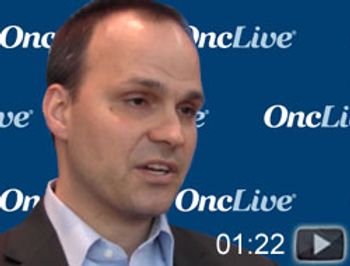
Brock Schroeder, PhD, senior director, Medical and Scientific Affairs at bioTheranostics, discusses findings regarding the Breast Cancer Index in predicting patients with estrogen receptor (ER)-positive breast cancer at high risk of recurrence.
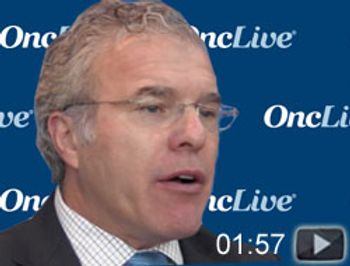
Ricardo H. Alvarez, MD, MSc, director of Cancer Research, breast medical oncologist, Southeastern Regional Medical Center, Cancer Treatment Centers of America, discusses updated findings regarding the mechanism of action with eribulin mesylate (Halaven) and how it impacts patients with HER2-negative breast cancer.
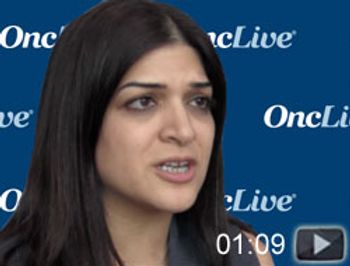
Julie R. Nangia, MD, assistant professor, Breast Center-Clinic, faculty senator, Baylor College of Medicine, discusses the results of the Scalp Cooling Alopecia Prevention trial (SCALP) for patients with early-stage breast cancer.

Treatment with pembrolizumab continued to show a consistent durable benefit with an additional year of follow-up for heavily pretreated patients with recurrent PD-L1-positive metastatic triple-negative breast cancer.
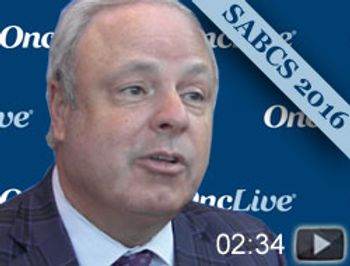
Howard A. "Skip" Burris, MD, president of Clinical Operations and chief medical officer at Sarah Cannon Research Institute, discusses updated findings from the MONALEESA-2 trial, which explored first-line treatment with ribociclib plus letrozole in patients with hormone receptor (HR)-positive, HER2-negative breast cancer.

Sara M. Tolaney, MD, MPH, associate director, Clinical Research, Breast Oncology, Susan F. Smith Center for Women's Cancers, senior physician, instructor in Medicine, Harvard Medical School, discusses a phase Ib/II trial exploring eribulin mesylate (Halaven) in combination with pembrolizumab (Keytruda) in patients with metastatic triple-negative breast cancer (TNBC).

The combination of pembrolizumab and eribulin demonstrated a 33.3% objective response rate for patients with metastatic triple-negative breast cancer who received 0 to 2 prior lines of therapy.

The artificial intelligence computer program Watson for Oncology (WFO) achieved a high degree of concordance with tumor board recommendations in a double-blinded validation study in Bengaluru, India, according to results presented at the 2016 San Antonio Breast Cancer Symposium (SABCS).

Aromatase inhibitor (AI) therapy may pose a risk of cardiovascular disease to postmenopausal women with early-stage breast cancer, raising the possibility of a long-term complication in an era of growing survivorship when patients are treated with estrogen-targeting drugs for years.

Women who are experiencing symptoms of menopause are less likely to adhere to treatment, according to findings presented at the 2016 San Antonio Breast Cancer Symposium.

A subgroup analysis of the randomized MONALEESA-2 trial showed that patients with advanced HR-positive, HER2-negative breast cancer, and visceral metastases obtained a significant benefit from treatment with the CDK4/6 inhibitor ribociclib combined with letrozole.

Treatment with sacituzumab govitecan was well-tolerated and induced durable responses, some lasting longer than 1 year, for heavily pretreated patients with metastatic triple-negative breast cancer.

Findings from the first prospective, randomized clinical trial to evaluate modern scalp-cooling demonstrate that the system is safe and effective in reducing hair loss in women being treated with chemotherapy for their breast cancer, especially for those on taxane-based regimens.

Prophylactic treatment with the combination of loperamide and budesonide reduced the rate of grade ≥3 diarrhea associated with neratinib to 15% compared with 39.9% observed in the ExteNET trial.

There has been renewed interest in eribulin mesylate following its FDA approval for advanced or unresectable liposarcoma and with the introduction of a growing body of preclinical work suggesting the agent has a novel anti–mesenchymal mechanism of action.
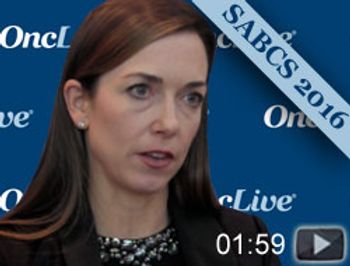
Sara A. Hurvitz, MD, medical oncologist, associate professor of Medicine, medical director, Jonsson Comprehensive Cancer Center Clinical Research Unit, UCLA, discusses the findings of the neoMONARCH trial, a neoadjuvant regimen combining the CDK4/6 inhibitor abemaciclib with anastrozole, which induced a response rate of 54.7% in patients with hormone receptor–positive, HER2-negative early-stage breast cancer.